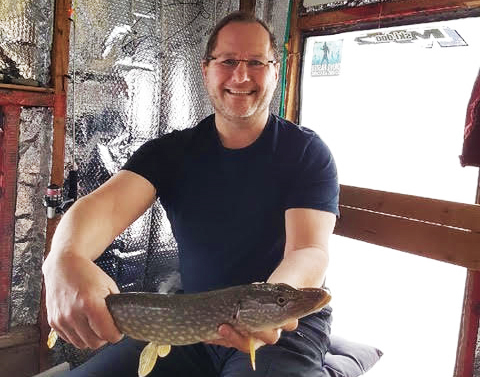Five years ago, Lawrence Traa was watching television when he suddenly forgot the names of everyone he knew.
The Manitoba resident and father of two had just turned 50, and his doctor told him some memory loss was normal. Traa was skeptical.
“I’ve spent my life working in aerospace in the sciences, and I couldn’t accept that as an answer,” he explained. “Then the names started coming back to me from oldest to newest, and I suspected I was experiencing pressure on my brain.”
Traa pushed for an MRI, and a brain tumour was discovered. Further testing revealed it was very similar to glioblastoma multiforme (GBM), the same cancer Tragically Hip band member Gord Downie passed away from in October 2017. There is currently no cure for the disease.
“The neurologist and oncologist said based on the size and location I would have less than two years to live,” Traa recalls. “They told me to get my things in order.”
The concept of cancer and death were familiar to Traa, who nursed his “athletic and brilliant” wife through the disease before she passed away a decade ago.
“She taught me so much about death, and dying,” he says. “One of the toughest things for brain cancer patients to come to terms with is that they may die from the disease, but because of my wife’s experiences I’ve reached a place of acceptance.”
Traa underwent a successful surgery that removed 70 per cent of the tumour in 2013, and then had chemotherapy and radiation. Despite his initially poor prognosis he has surprised doctors, and is now in his sixth year of battling the disease.
“Living with cancer, I wake up in the morning and think, ‘What a great day!’” says Traa, who is monitored closely by his medical team and undergoes checkups every three months. “I could get hit by a bus tomorrow, so I’m going to enjoy life. That’s what I’m doing now.”
This mantra has become Traa’s life philosophy: he’s an active volunteer, enjoys ice fishing, mountaineering and painting, regularly goes on motorcycle trips, and loves to spend time with his two “amazing” adult children.
He was also thrilled to learn that DNA repair biologist Dr. Sachin Katyal (CancerCare Manitoba, University of Manitoba) was recently awarded Manitoba’s first TFRI New Investigator Award for his quick-to-clinic personalized medicine approach to better treat GBM patients. Dr. Katyal is analyzing resistant brain cancer tumour cells to determine what DNA-damaging enzyme repair proteins are allowing cancer cells to survive following chemotherapy and radiation treatments.
“Hearing about research like this being done in Manitoba brings brain cancer patients hope,” he says. “When people donate it buys myself and future patients more time. The research is being sped up in such a good way, and that is very exciting!”
